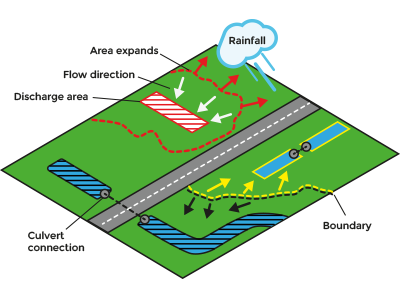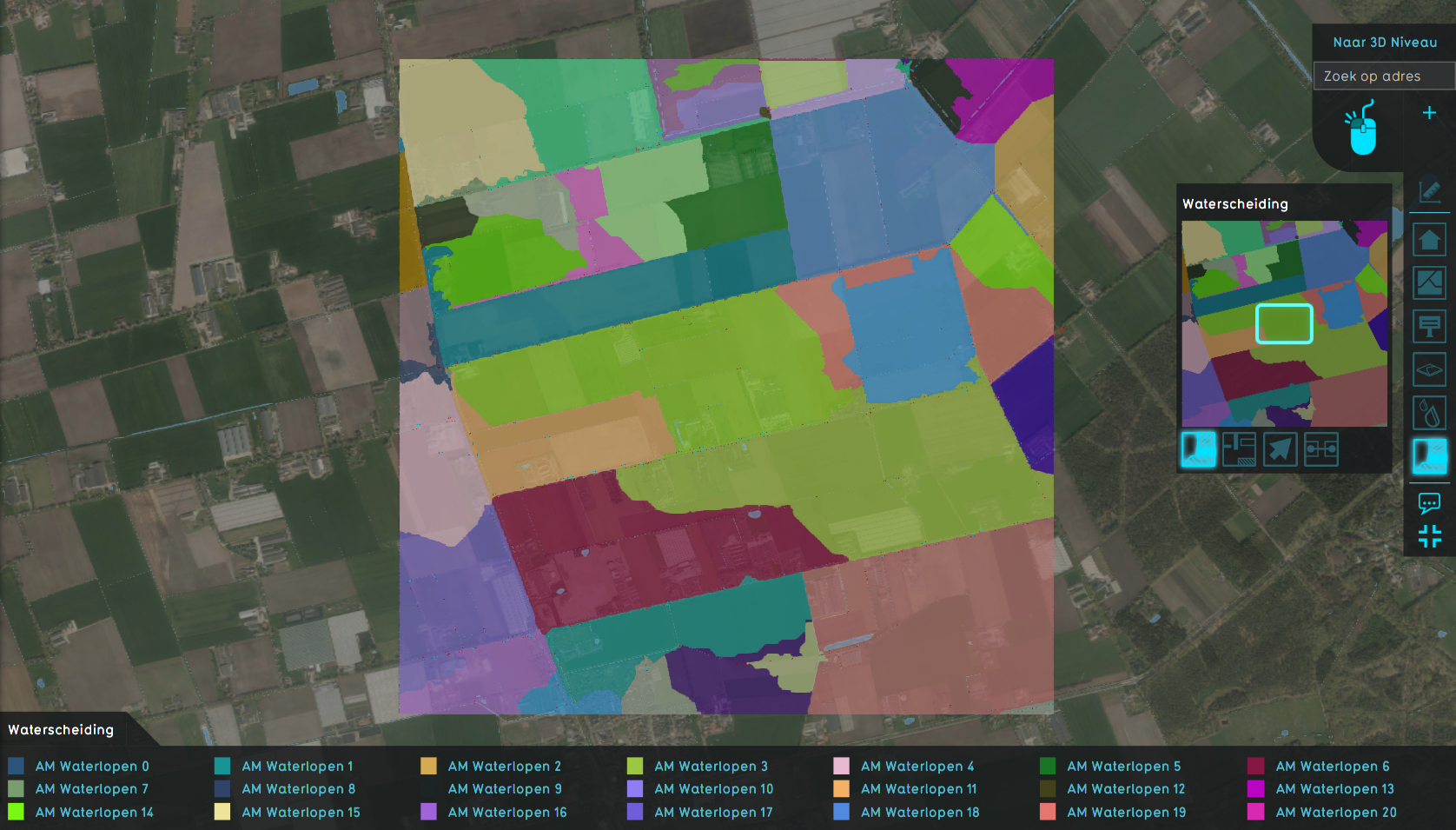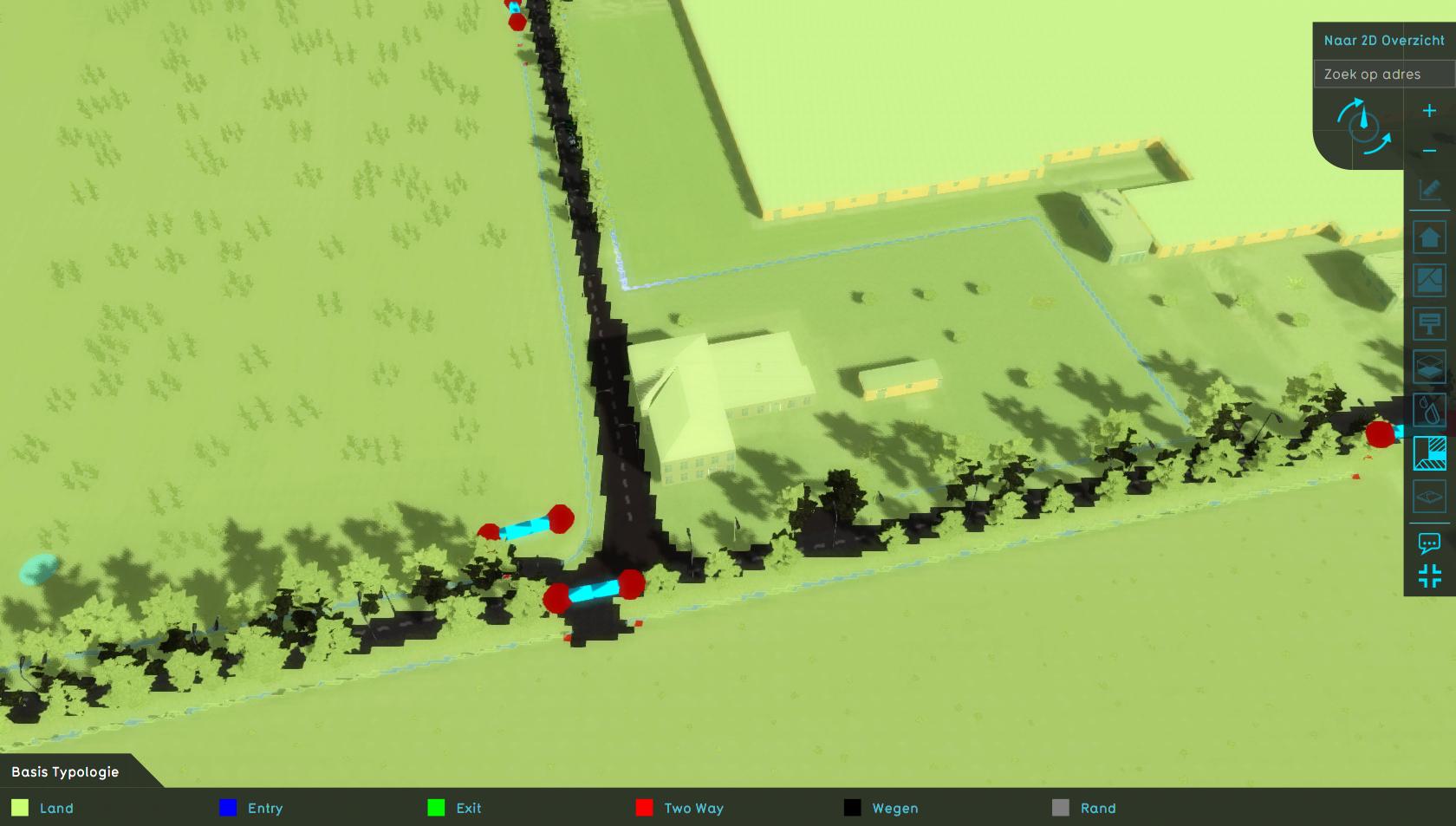Watershed Module overview: Difference between revisions
Jump to navigation
Jump to search
| Line 28: | Line 28: | ||
==Result Types== | ==Result Types== | ||
* [[Watershed result type (Watershed Overlay)|Watershed]] | * [[Watershed result type (Watershed Overlay)|Watershed]] | ||
* [[Discharge areas result type (Watershed Overlay)|Discharge areas]] | * [[Discharge areas result type (Watershed Overlay)|Discharge areas]] | ||
* [[Direction result type (Watershed Overlay)|Direction]] | * [[Direction result type (Watershed Overlay)|Direction]] | ||
* [[Base types result type (Watershed Overlay)|Base types]] | * [[Base types result type (Watershed Overlay)|Base types]] | ||
<ul> | |||
<li style = "display:inline-block">[[File:Watershed_Overlay.png|400xpx]]</li> | |||
<li style = "display:inline-block">[[File:Watershed_base_types.jpeg|400xpx]]</li> | |||
</ul> | |||
Revision as of 15:18, 10 June 2020
Overview
The watershed module calculates watersheds for rainfall based on a digital terrain model or a calculated flow direction result of a Water Overlay. The Watershed Overlay can provide an indication into which waterway or body rainfall will end up. Users can assign and group waterways and bodies using discharge areas as input data. Additionally, culverts that connect waterways and bodies can be taken into account, which enables connected waterways and bodies to be automatically assigned to the prioritized client-provided discharge areas.
Input
- Water terrains;
- Discharge areas (Advised);
- Either:
- Water Overlay's surface average direction result type;
- Digital terrain model (DTM).
- Culverts (Optional): Culverts are only taken into account when based on the surface average direction result type, because the culverts are identified based on the configuration of that water overlay.
Options
- Discharge remaining water: Create additional discharge areas for waterways and bodies that are not connected by culverts to discharge areas.
- Minimal area: Only waterways and bodies with the required minimum size can become an additional discharge areas.
- Discharge method:
- Height minima: Restricted to height map input data
- Water terrains: Restricted to directional data. Each water body is a separate discharge area.
- Specific areas: Restricted to directional data. Provided discharge areas are prioritized and set as input for watersheds. Water bodies that are connected by culverts to discharge area water bodies are assigned to that discharge area as well. Depending on the option "Discharge remaining water", the remaining water bodies are stored as a separate discharge area.
- Fill distance: unmatched cells are assigned to nearest watershed when within the provided distance.
- Culvert flow direction: When active, a water body is only connected to an other water body when the first flows to the second.
- Limit road: When active, the operation that assigns unmatched cells to the nearest watershed within the provided distance locally stops on cells that are roads.







